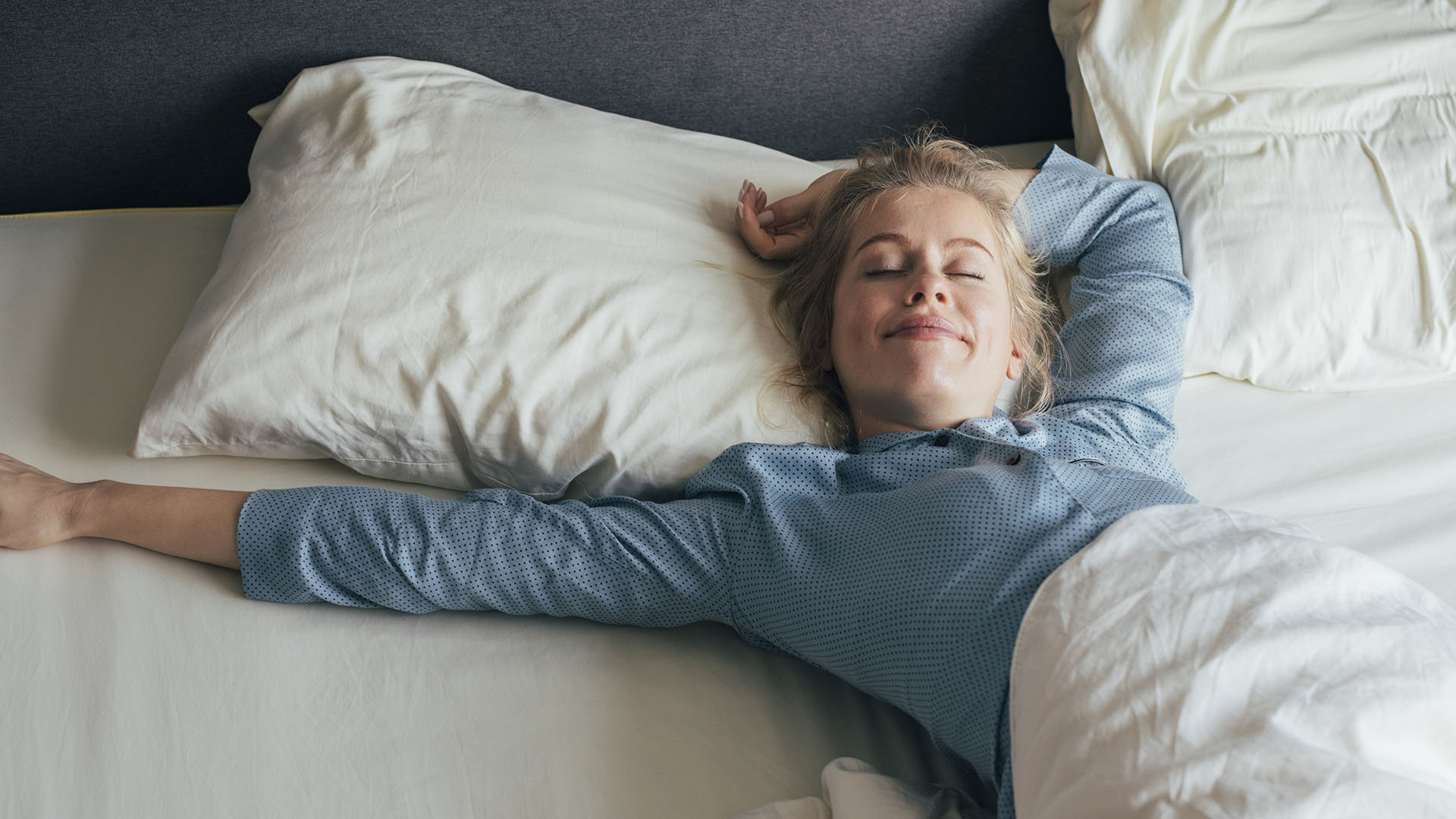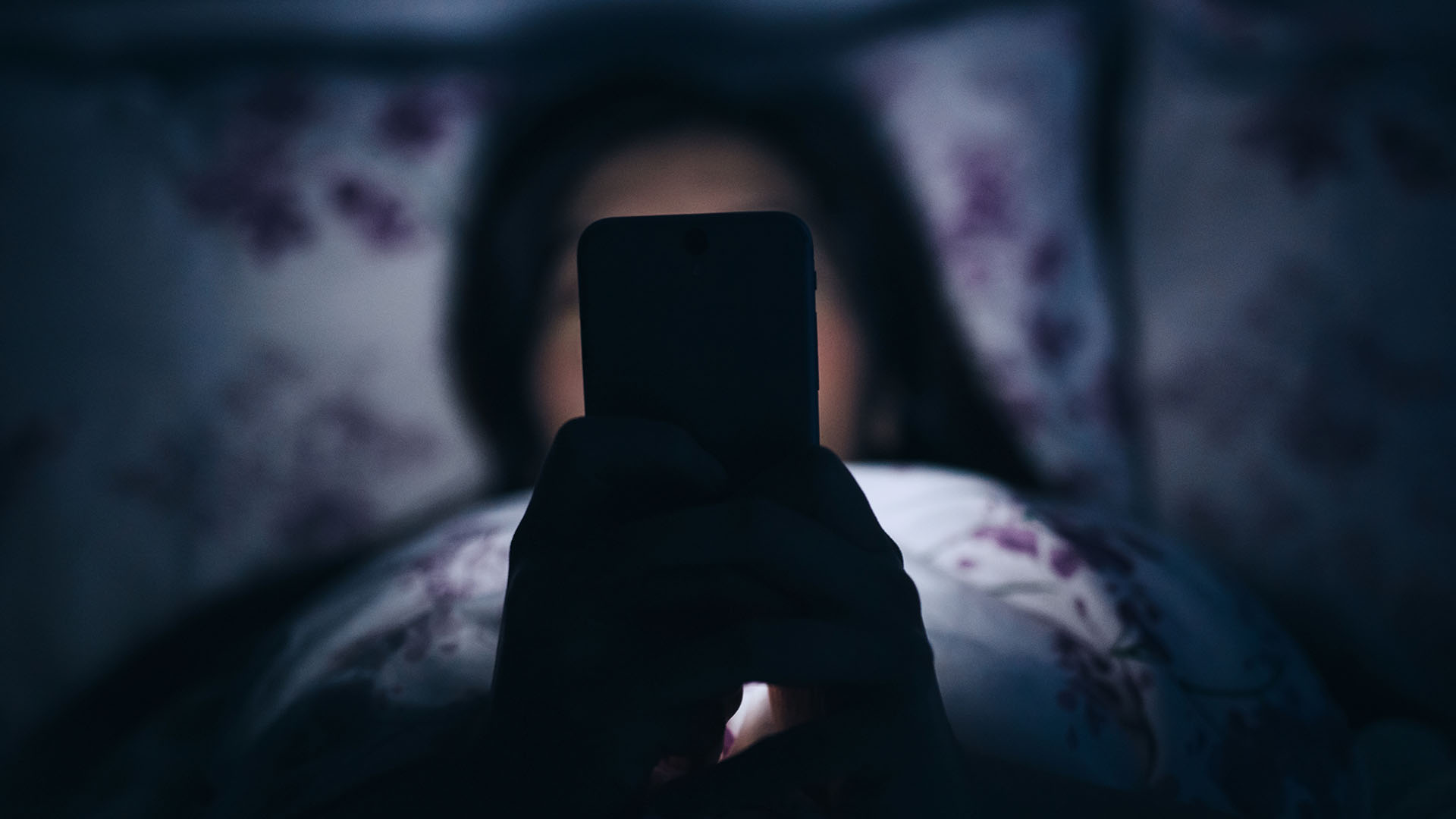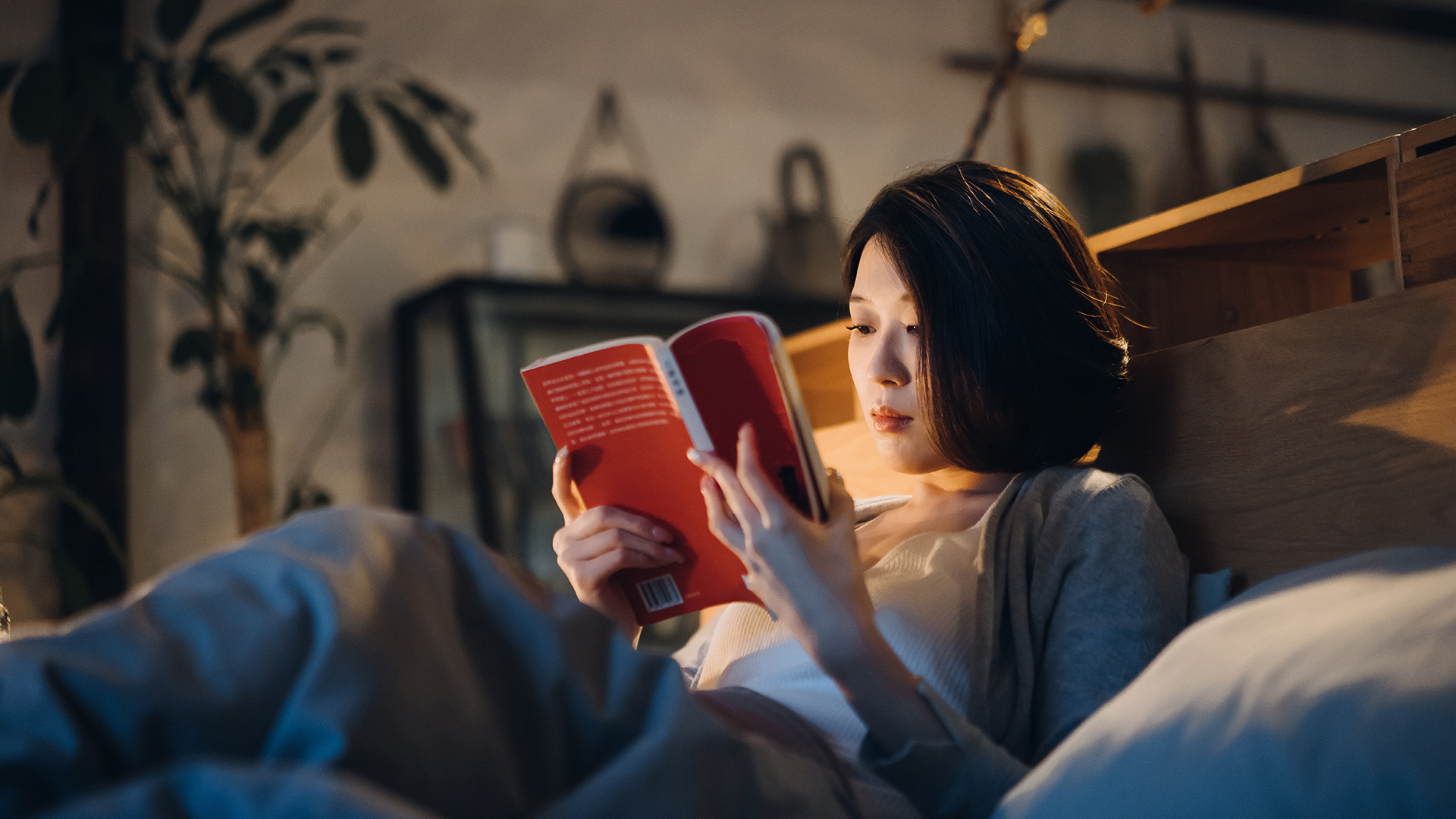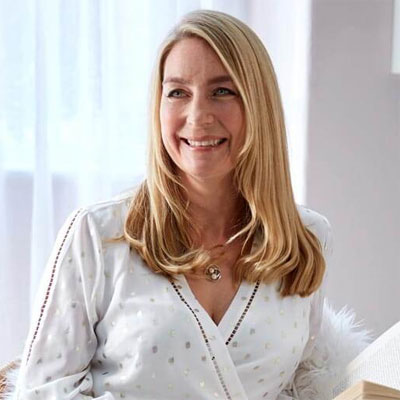Slacking on your new year's sleep goals? Here's how I'm getting mine back on track
It's all about small changes and consistent results

I don't think I'm alone when I say that my new year's resolutions were hopelessly optimistic. I wanted to go to bed early, wake up even earlier, and use my extra time in the morning to get active. Unfortunately, all I've actually accomplished is picking a better iPhone alarm to wake up to. But with February just round the corner, I'm determined to get back on track.
Or, at least, angled in the right direction. As Dr Lindsay Browning, sleep expert at And So To Bed, explains, instead of making another set of unrealistic resolutions, it's better to take a softer approach.
“The all-or-nothing mindset when it comes to January goals often results in people getting overwhelmed, and returning to old habits much sooner than anticipated," says Dr Browning. “Sustainable changes focus on gradual, realistic adjustments that align with your lifestyle and values, rather than chasing unattainable goals."
Okay, so my February resolution won't be to somehow become a morning person. (Even the very best mattress won't help me accomplish that minor miracle.) Instead, here are three simple additions to my bedtime routine that means better sleep won't just be a January goal, but a year-round reality.
My 3 tips for getting better sleep, easier
If, like me, your January sleep goals have started slipping, here are some achievable ways to pick up the momentum (or get it going again).
1. Set a bedtime reminder
I'm absolutely guilty of that whole 'just five more minutes' lie. When you promise yourself one final scroll through TikTok and then the next thing you know, it's 1am and that night's sleep is officially ruined.

To combat this, I've started setting bedtime reminders. These notifications might not force me into bed, but they do help me keep track of just how much time I'm wasting. And sometimes I need that kick to get me up off the sofa and into bed.
Get daily insight, inspiration and deals in your inbox
Sign up for breaking news, reviews, opinion, top tech deals, and more.
In addition, I've started actually utilizing screen time settings. Did you know that Instagram and TikTok both allow you to set daily limits and break reminders? I did – I just never turned them on. But now they're working with my bedtime reminders to get me to put the phone down.
2. Move my bedtime forward by a few minutes
As Dr Browning says, it's better to make small, attainable shifts, than set big goals you won't reach. With that in mind, I'm bringing my bedtime and wake time forward in 15 minute increments. Small enough that it won't seem impossible, while remaining a step in the right direction.
And I'm not just talking about weekdays. Yes, I'm going to try waking up earlier at the weekend. My weekend and weekday sleep patterns are completely different, and this can result in a phenomenon known as social jet lag – when you feel as tired and groggy as you would in a new timezone. By getting my weekend sleep times closer to my weekday sleep times, I'm hoping to make Monday mornings that bit easier.
3. Read before bed
Inspired by my colleague's brave leap from doomscrolling to reading, I'm also planning on switching to a book before bed. Reading in bed can help you fall asleep, especially when used as an alternative to looking at blue light LED screens. I've made sure my book is right by my bed, so I can't ignore it.

So, why go through this effort just for a few more minutes sleep? “Sleep, although not always a top priority for people, is vital for our longevity," says Dr Browning. "When we sleep, our brains physically repair our bodies and regulate important hormones which control the functioning of our bodies during the day."
With that in mind, maybe 2024 won't be the year I become a morning person – but with these small changes, it can be the year I get consistently better rest.

Dr. Lindsay Browning is a chartered psychologist, neuroscientist, author and sleep expert who is passionate about helping people to improve their sleep. She's an Associate Fellow of the British Psychological Society, a member of the British Sleep Society and a member of the American Academy of Sleep Medicine, and has published several academic papers and an international self-help book: Navigating Sleeplessness.

Ruth is TechRadar’s Sleep Writer. She’s here to help you find the perfect sleep setup for your budget and personal preferences. As well as keeping a keen eye on everything that’s going on in the world of mattresses, she regularly speaks to experts to help you learn how to improve your sleep habits, whether that’s by debunking sleep myths or explaining the science behind it all. Prior to joining the TechRadar team, she wrote features and product guides for new parents hoping to get a decent night's sleep, as well as writing for a variety of online spaces.